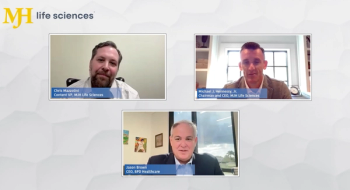
John Dalton, MD: Good Outcomes Data Are Hard to Find
"We're trying to get a hold of them," he said. "In the meantime, we measure compliance with process."
Healthcare is obsessed right now with outcome data. The information is treasured as a way of informing care and also developing value-based care initiatives, but only a few comprehensive compilations of data out there are accessible to anyone. Most are siloed by hospitals, insurance companies, and government branches, according to experts.
John Dalton, MD, is the chief quality officer of PhyMed. He spoke to Healthcare Analytics News™ about what his practice must do to inform care in lieu of outcomes data. Here's the transcript.
“Value basically is: If you're the person we're delivering the care to, do you get the outcomes you want and at the lowest cost? Not only by money, but by inconvenience and so forth. That's really what should drive our delivery of healthcare.
"Outcomes are still very difficult to measure in medicine. Hospitals have some of those outcomes, but they're buried in their EHR. Insurance companies actually have a lot of outcomes, but they're buried in ICD-10 codes. The government has a lot of outcomes, but they're also buried as well.
"Until we get better in the healthcare delivery system at sharing those outcomes, we have to get a hold of them the best we can, and we're working on that… For example, for our protective lung ventilation initiative, we have to focus our processes on things that we know from the literature will affect outcomes, so in other words we can't follow our own outcomes because we don't have them.
"In ICU care, for a number of years we've known that if we ventilate patients in certain patterns, the respiratory complications we get later are reduced. We're applying that now to the intraoperative period as well.
"So we can't measure outcomes. We're trying to get a hold of them. In the meantime, we can measure compliance with that process. In other words, if the ventilator is set the way we want it to be X number of times, that's success in that process. We follow the data from our own EHR as to what the settings of the ventilator are, the positive ends and end expiratory pressure settings, etc.… We measure how closely we can follow those parameters. Our work in that initiative that doesn't necessarily improve outcomes, but we know from the literature that if we're better at that process it probably will improve our outcomes. That's kind of a complicated thing, but that's data-driven process improvement, which we think then focuses on outcomes."






















































































